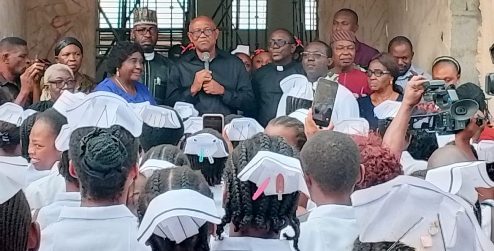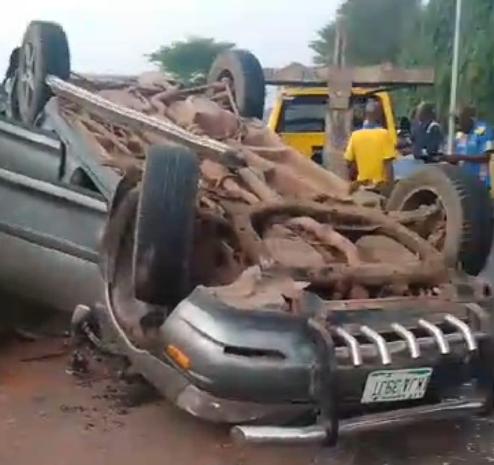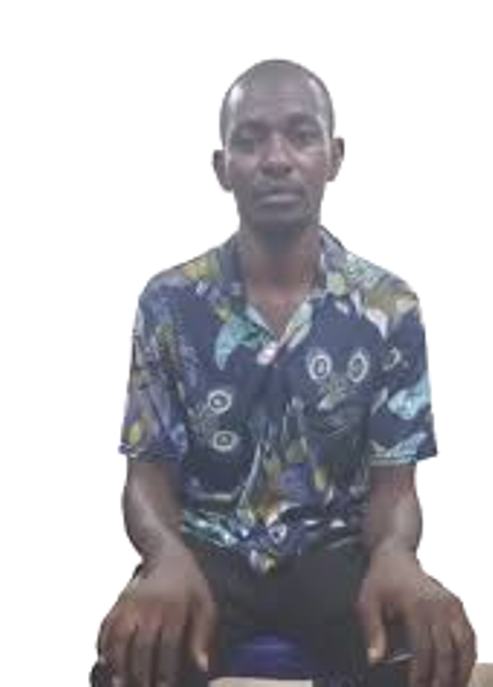
LAGOS DECEMBER 15TH (NEWSRANGERS)-The leader of Boko Haram, the Islamist extremist group that abducted hundreds of schoolgirls in Nigeria six years ago, has claimed responsibility for the mass abduction of students in north-western Katsina state last week.
In an audio tape released on Tuesday, Abubakar Shekau said: “Our brothers were behind the abduction in Katsina.”
A large group of men armed with AK-47s overran the all-boys Government Science secondary school in the town of Kankara on Friday night, marching more than 300 students into surrounding forests.
Boko Haram kidnapped 276 girls from their school dormitory in Chibok, in north-eastern Borno state, in April 2014 and about 100 are still missing. The group has also taken other schoolchildren as well as thousands of people across north-east Nigeria and has recently expanded into the country’s north-west.
There is doubt over the direct involvement of Boko Haram in the latest mass abduction, however. Shekau’s statement lacked detail, and officials in Katsina have already received ransom demands from a group of bandits that witnesses said were responsible.
One western official working in counter-terrorism in the region said it was possible bandits may have transferred some or all of the kidnapped schoolboys to the extremists in return for money, weapons or other resources.
Across the entire Sahel region, there are close relations between armed criminals, traffickers and Islamist extremists.
More details have emerged of Friday’s attack. Musa Adamu, 18, was sleeping in the school’s dormitory when he heard gunshots.
“The sound got louder, then I ran and jumped out of the window and over the fence of the school and ran along with many others into the forest. We spent the night there, because we were afraid to come back to the school,” he said.
Another student was unable to flee the initial attack and was robbed.
“Two of the gunmen broke into our hostel and asked us to give them our phones. I told them I had no phone, then they collected our money, then broke open our lockers and took our soaps, skin creams, milk and biscuits,” said Hassan Al Bashir.
“The gunmen then started shouting that we should all go outside, but as we were going I sneaked and hid and that was how I escaped them.’’
Samatu Aliyu was forced to march into the forest by the attackers with hundreds of others, but managed to escape and found his way back to Kankara after 36 hours.
“We walked from that night to the morning in the forest without shoes. Most of us had feet that were bleeding and there was nothing to eat. We only drank muddy water, and at some point, they left me behind and turned away, and so I ran and walked back alone,” Aliyu said.
The attack has sparked anger in the largely poor and rural region.
Nigeria’s president, Muhammadu Buhari, who is from Katsina, condemned the “cowardly … attack on innocent children”.
Jamilu Isah, a resident of Kankara, said the town was “in mourning”.
“Our mothers are still crying everywhere you go in the town. People are not happy. We feel the government has abandoned us … we just want them to bring our boys back,” he said.
Kidnappings for ransom by bandits have become commonplace across much of the north-west in recent years, with frequent ambushes on roads, as well as fatal robberies targeting cattle and food.
Towns close to forests stretching across north-west Nigeria and into Niger have been the most vulnerable to attacks.
According to Amnesty International, 1,126 people were killed by bandits in Nigeria between January and June this year.
While “banditry” encompasses a range of criminal activity, many of the recent large-scale armed attacks are suspected to have been carried out by assailants from the semi-nomadic Fulani community.
The attack in Katsina will put further pressure on Buhari and his government, which have failed to address the endemic insecurity in much of Nigeria.
Successive military efforts have failed to destroy Boko Haram and Shekau has been reported dead on multiple occasions.
“The Buhari administration has not responded to this situation with the urgency, seriousness and tact it requires. Different military operations have been launched, but it’s clear that all of them are understaffed, under-skilled and underfunded,” Bulama Bukarti, an extremism expert and analyst at the Tony Blair Institute, said.
The Guardian










